Introduction
Nestled in the serene environs of Mangalore, Pilikula Biological Park is a sanctuary of biodiversity and conservation, offering an enchanting escape for nature enthusiasts, families, tourists, and wildlife lovers. This sprawling park is more than just a zoo; it is a testament to eco-tourism and sustainable practices, providing visitors with a unique opportunity to experience wildlife in their naturalistic habitats. Join us as we explore the myriad attractions, rich animal diversity, and the pivotal conservation efforts that make Pilikula Biological Park a must-visit destination in Karnataka.
The Origins of Pilikula Biological Park
Pilikula Biological Park is a significant part of the larger Pilikula Nisargadhama, a unique eco-tourism project aimed at promoting conservation and environmental education. Established with the vision of fostering a deeper understanding of nature and wildlife, the park spans over 370 acres and is strategically located on the outskirts of Mangalore, a coastal city renowned for its verdant landscapes and rich cultural heritage.

Historical Background
The area where Pilikula Biological Park now exists has a rich history that intertwines with the natural environment. The name “Pilikula” originates from the local Tulu language, where “Pili” translates to tiger, and “Kula” means pond. This name serves as a historical reference to the tigers that once roamed this region, highlighting the area’s significance in terms of biodiversity and wildlife.
In the early 1990s, the Government of Karnataka recognized the need for a dedicated space for conservation and ecological education, especially given the increasing threats to wildlife and natural habitats due to urbanization and development. This realization led to the conceptualization of Pilikula Nisargadhama as a multi-faceted project, integrating a biological park, an aquarium, a botanical garden, and a heritage village.
Establishment of the Park
Pilikula Biological Park was officially inaugurated in 2006 and has since become a vital part of the region’s conservation efforts. The park’s development involved extensive planning and collaboration among wildlife experts, ecologists, and local communities. The goal was to create an environment that not only showcased the rich biodiversity of the region but also educated visitors about the importance of wildlife conservation.
The park features a variety of enclosures designed to mimic the animals’ natural habitats, allowing them to thrive in conditions that promote natural behaviors. This design philosophy reflects a commitment to animal welfare and conservation ethics. Over the years, the park has expanded its collection of flora and fauna, featuring native and exotic species, and has become a crucial resource for research and education on biodiversity.
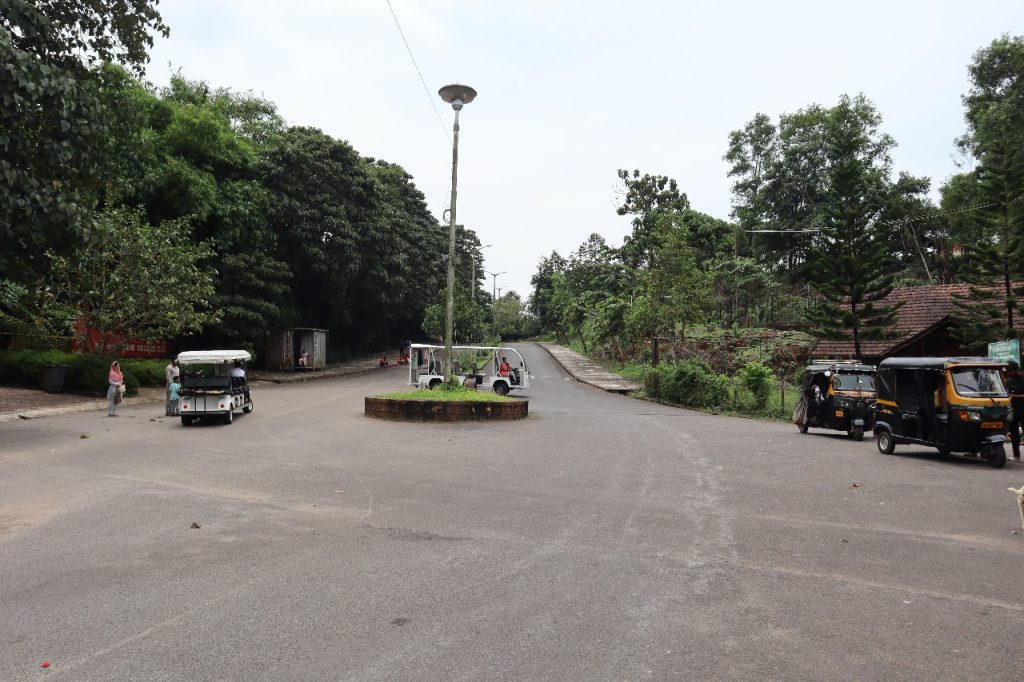
Attractions at Pilikula Biological Park
Animal Diversity
Pilikula Biological Park is home to a remarkable variety of animal species, both native and exotic. The park’s enclosures are designed to mimic natural habitats, ensuring that the animals thrive in conditions that closely resemble their wild counterparts. Here are some key attractions:
Big Cats
One of the most striking features of Pilikula Biological Park is its impressive collection of big cats. The park is home to:
- Bengal Tigers: Known for their powerful build and striking orange coat with black stripes, Bengal tigers are the star attractions. The spacious enclosures allow them to roam and exhibit natural behaviors such as climbing, swimming, and hunting simulations, providing visitors with a captivating glimpse into their daily lives.
- Leopards: With their distinctive rosette-patterned fur, leopards are agile climbers and skilled hunters. Pilikula’s leopard enclosures are designed to encourage these behaviors, showcasing the stealth and elegance of these solitary creatures.
- Lions: Often referred to as the kings of the jungle, lions at Pilikula live in pride-like structures that facilitate social interaction. Observing these majestic animals in a setting that reflects their natural habitat enhances understanding and appreciation of their social dynamics.
Primates
The primate section of Pilikula Biological Park is a delightful experience for visitors of all ages. The park houses various species, including:
- Macaques: Known for their playful nature and social behavior, macaques are often seen engaging in amusing antics. Their intelligence and adaptability make them fascinating to observe, and their enclosures are designed to encourage natural play and exploration.
- Langurs: These contemplative primates are often seen sitting thoughtfully or engaging in social grooming. Langurs play a vital role in their ecosystem and are showcased in settings that allow for both interaction and tranquility, giving visitors insight into their complex social structures.
Reptiles
The reptile house at Pilikula Biological Park is a fascinating exhibit for those intrigued by these often-misunderstood creatures. The collection includes:
- Cobras: These iconic snakes, known for their distinctive hoods, are both mesmerizing and educational. The park emphasizes the ecological importance of snakes, showcasing their role in controlling pest populations.
- Pythons: The sheer size and strength of pythons are awe-inspiring. Pilikula offers visitors the chance to learn about their unique hunting techniques and behavioral adaptations.
- Crocodiles: With their prehistoric appearance, crocodiles capture the imagination. The park’s crocodile enclosures are designed to replicate wetland habitats, allowing these reptiles to bask and hunt in a naturalistic setting.
Birds
Birdwatchers and enthusiasts will find themselves enchanted by the diverse avian population at Pilikula Biological Park. The aviary features a stunning variety of species, including:
- Colorful Parrots: Known for their vibrant plumage and vocal abilities, parrots add a splash of color and sound to the park. Educational programs highlight their intelligence and the need for conservation efforts.
- Majestic Peacocks: The park is home to several peafowl, whose iridescent feathers and extravagant courtship displays are a spectacle to behold. These birds thrive in the carefully curated environment, where they can roam freely and interact with their surroundings.
- Other Bird Species: Pilikula also showcases a variety of other birds, including ducks, cranes, and native songbirds. Each species is placed in an environment that supports their natural behaviors, offering visitors a well-rounded experience of avian diversity.
Aquarium and Botanical Garden
The Pilikula Aquarium offers visitors a captivating underwater journey through various aquatic ecosystems. Tanks filled with exotic fish, vibrant corals, and diverse marine life create an engaging and educational experience, allowing guests to learn about the delicate balance of aquatic habitats.
Adjacent to the aquarium, the Botanical Garden is a haven for botanists and nature lovers alike. It showcases a rich collection of both native and exotic plants, with themed sections such as a medicinal plant garden, cactus garden, and butterfly park, offering visitors the chance to appreciate the beauty and diversity of plant life.
Lake and Boating
Pilikula Lake is a picturesque central attraction, surrounded by lush greenery that enhances its serene beauty. The lake offers tranquil boating experiences, allowing visitors to connect with nature as they glide over the water. It also serves as a habitat for various waterfowl, making it an ideal spot for birdwatching and photography, where enthusiasts can capture the beauty of both the wildlife and the scenic landscape.
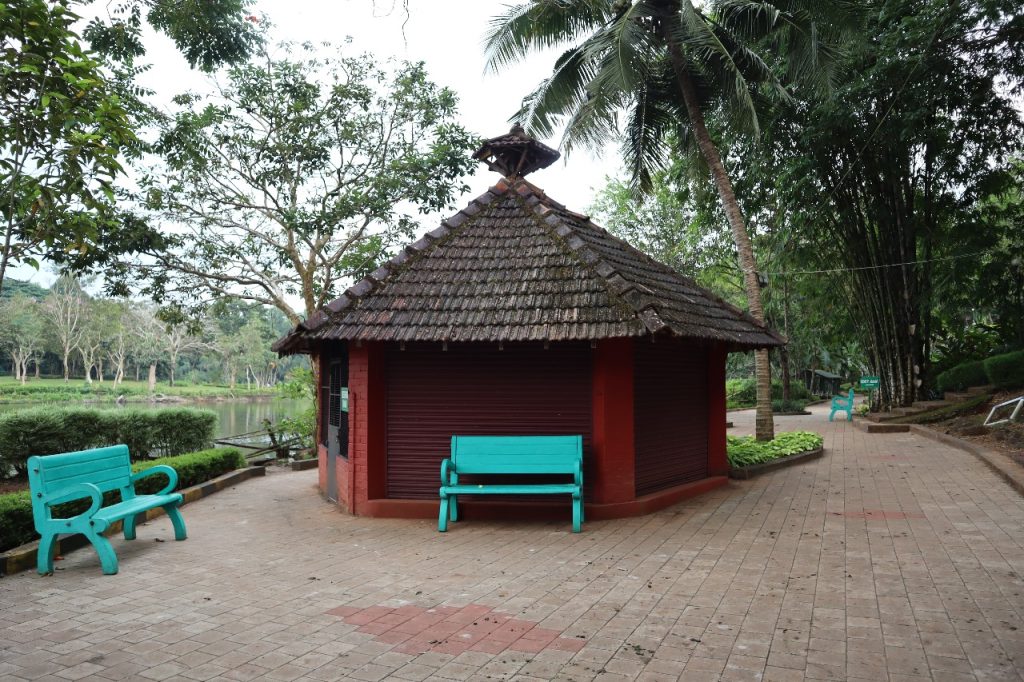
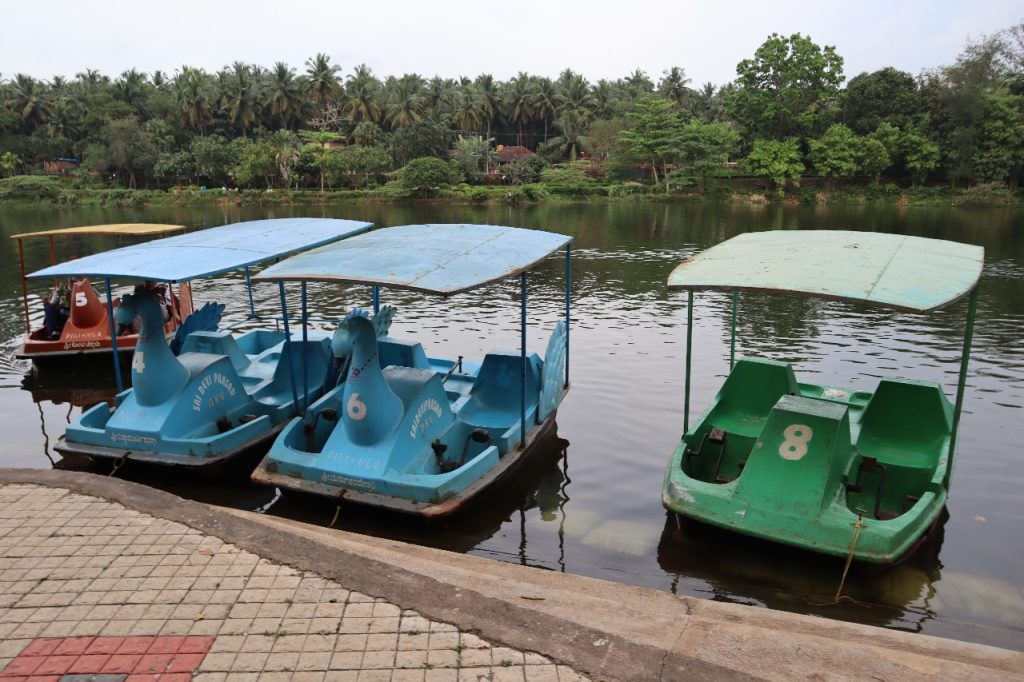
Heritage Village
The Pilikula Heritage Village is a cultural treasure trove that offers a glimpse into the traditional lifestyle of the region’s indigenous communities. Featuring authentic replicas of traditional houses, this village showcases various artifacts and demonstrations of local crafts, including pottery, weaving, and carpentry. A notable highlight is the Guthu House, which represents the traditional communal living style. This house is characterized by its distinctive architecture and serves as a focal point for understanding the cultural heritage and community spirit of the region.
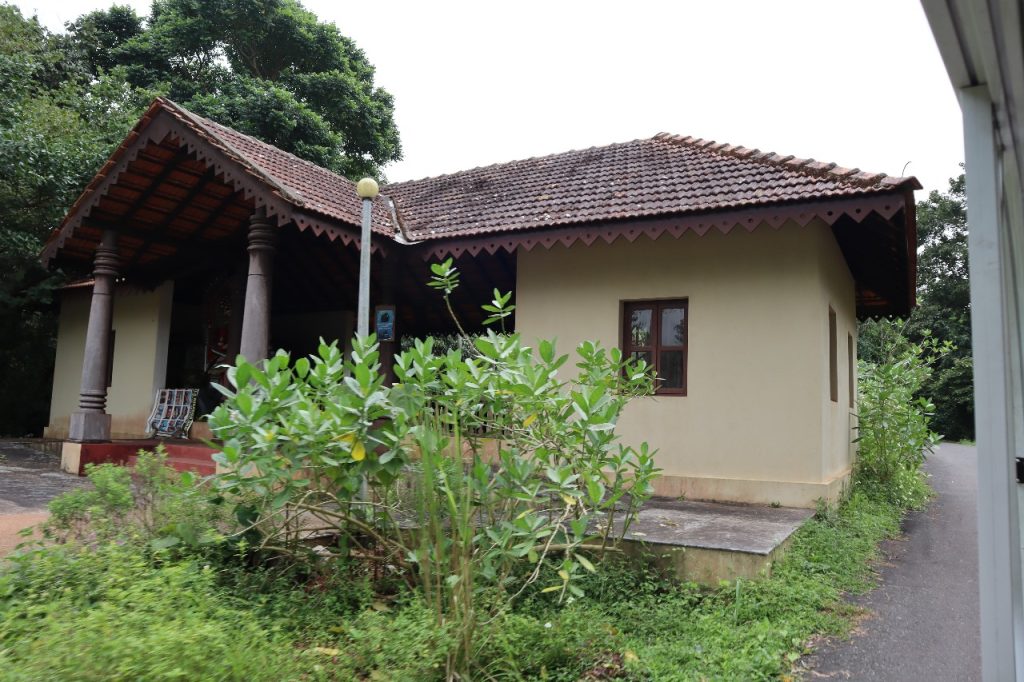
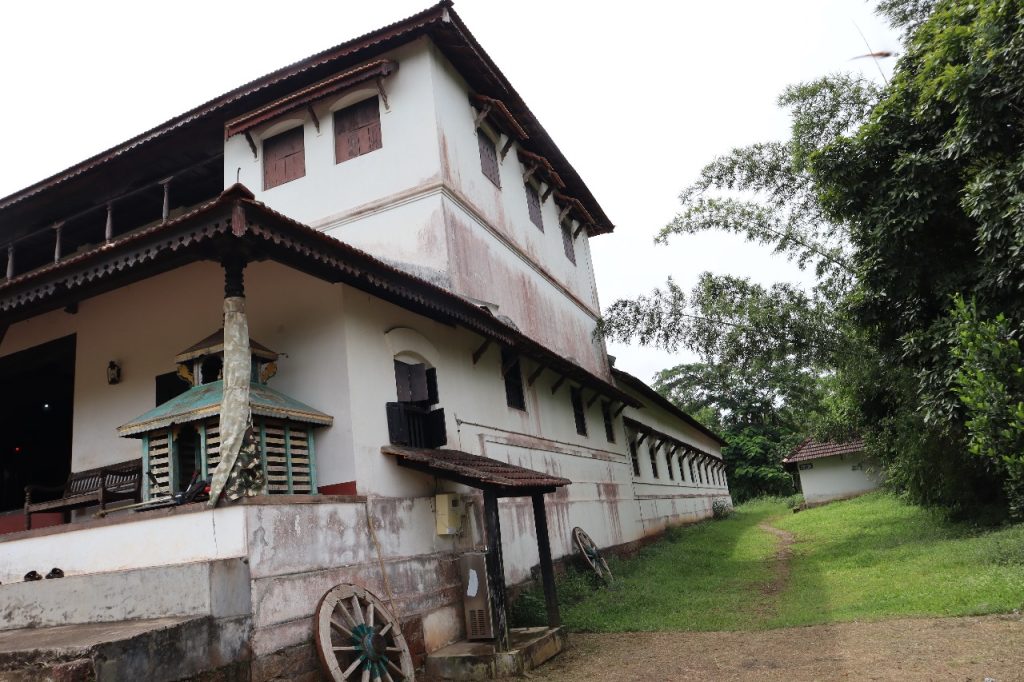
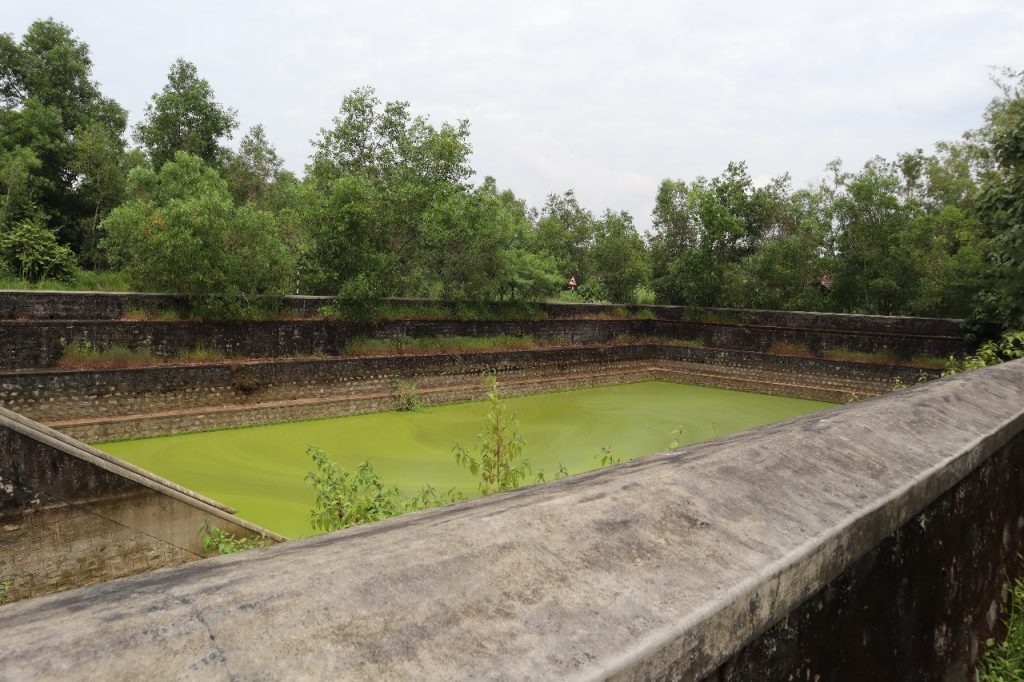
Regional Science Centre
The Regional Science Centre is an engaging hub for exploration and discovery. With interactive exhibits and educational displays, it sparks curiosity in visitors of all ages. The center is designed to provide hands-on learning experiences, making it an ideal destination for families and anyone interested in the wonders of science and technology.
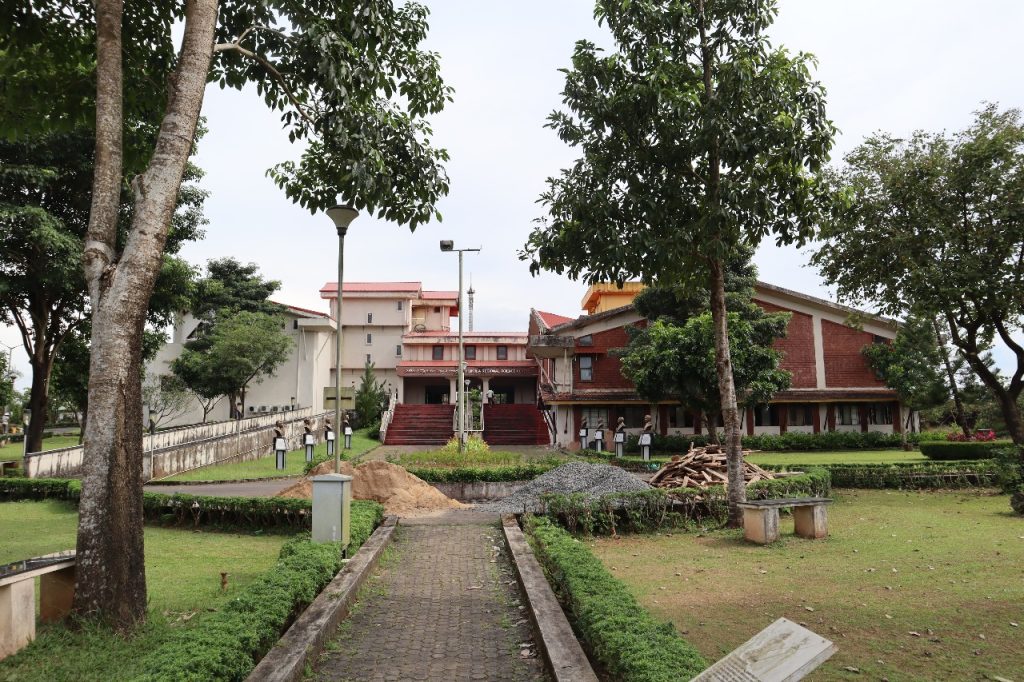
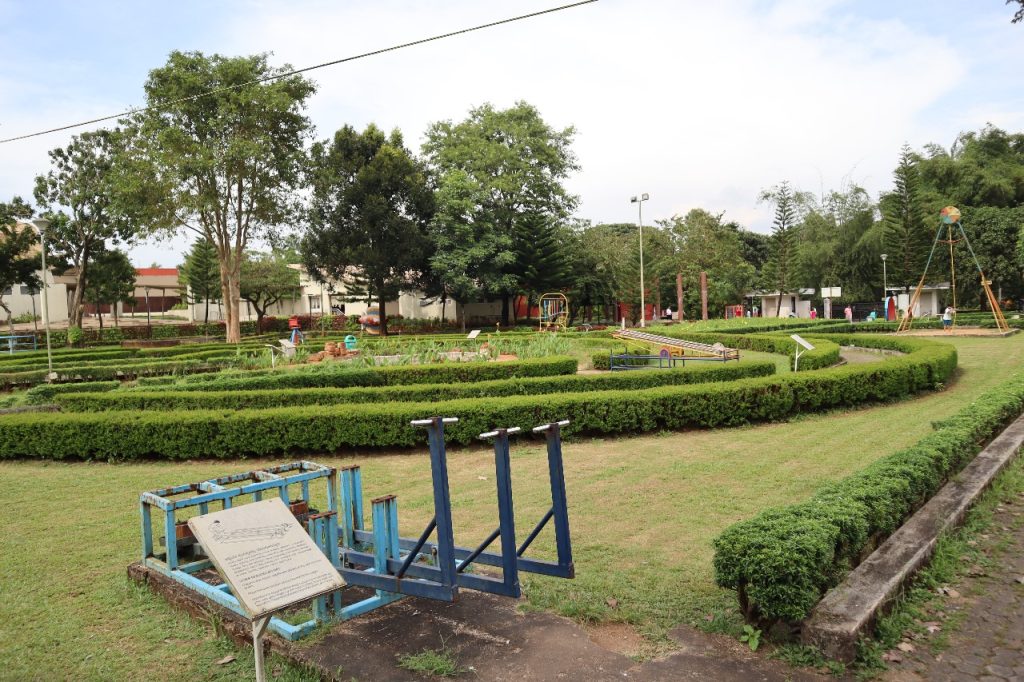
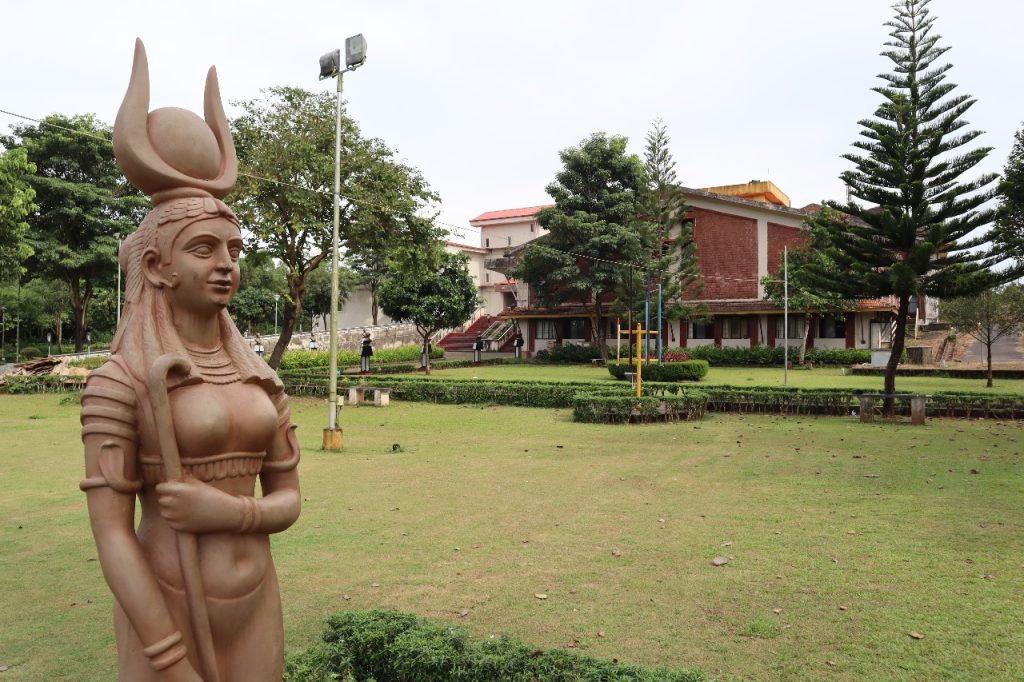
3D Planetarium
At the 3D Planetarium, visitors can immerse themselves in the mysteries of the universe through engaging and educational shows. The planetarium features a diverse schedule of presentations, including “Dawn of the Space Age,” which is available in English and Kannada at various times throughout the week. This show is screened on Sundays, Tuesdays, Thursdays, and Saturdays at 12:00 noon, 2:00 PM, and 4:00 PM.
Another captivating presentation, “Mysteries of the Unseen World,” is available on Wednesdays and Fridays, with shows at 12:00 noon, 2:00 PM, and 4:00 PM, all in English. The planetarium’s cutting-edge technology enhances the viewing experience, allowing guests to explore celestial phenomena and gain a deeper understanding of the universe.
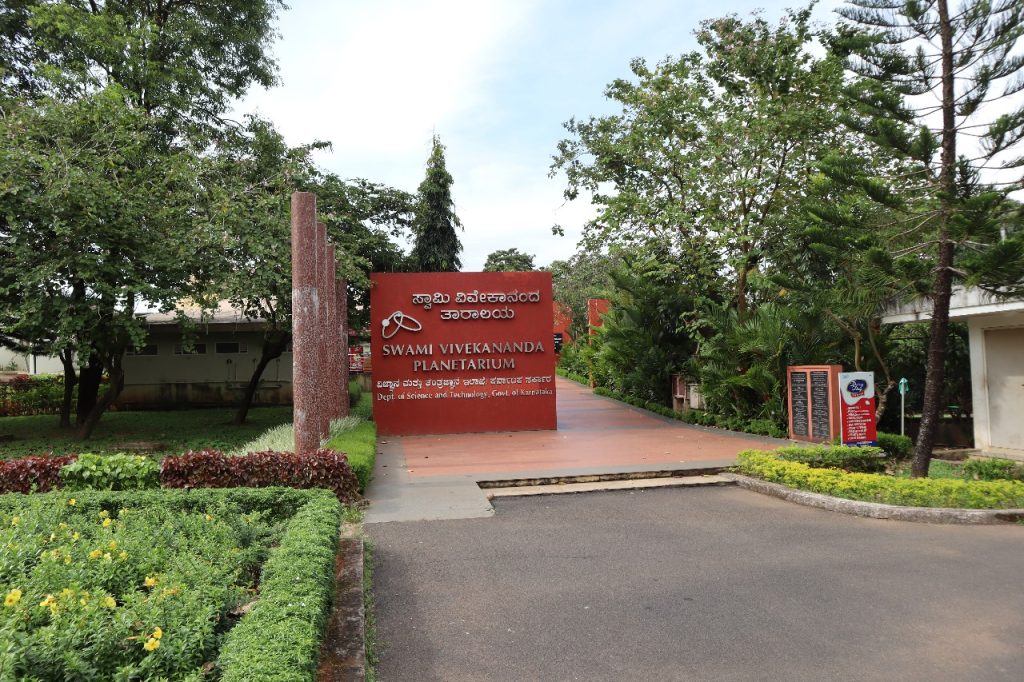
Lake Garden
The Lake Garden is a tranquil oasis within Pilikula Biological Park, featuring beautifully landscaped gardens and scenic walking paths. This peaceful area is perfect for relaxation, picnics, and enjoying the serene views of the lake, providing a delightful escape into nature.
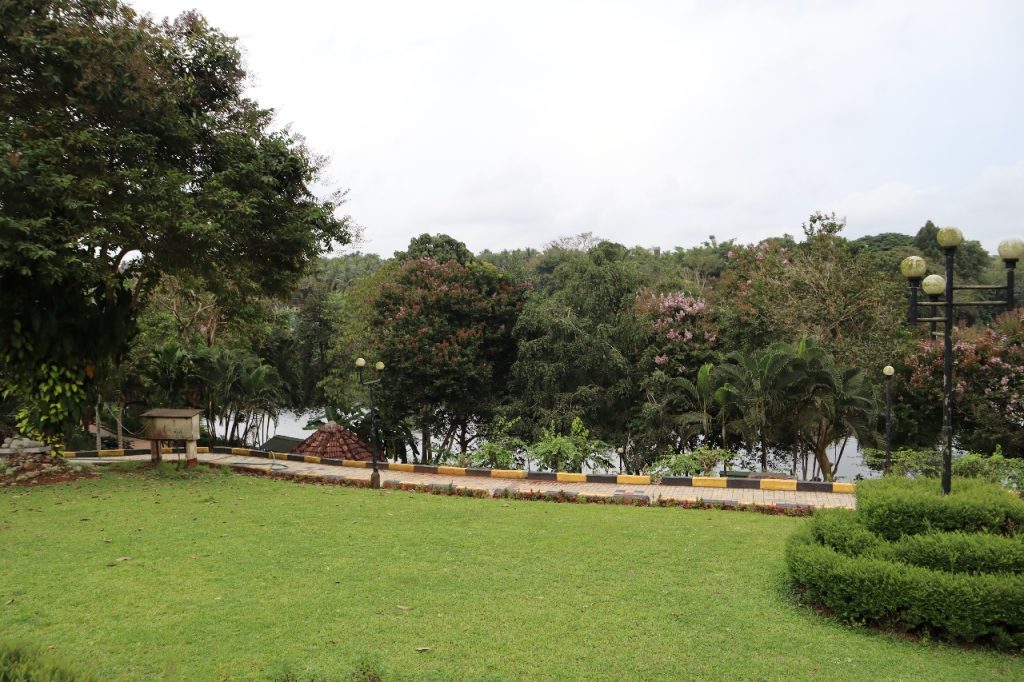
Botanical Garden and Museum
The Botanical Garden and Museum offer a vast array of plant species, alongside educational exhibits that emphasize the importance of plant conservation and biodiversity. This combination allows visitors to appreciate the beauty of plants while learning about their ecological significance and the need for conservation efforts to protect our planet’s rich flora.
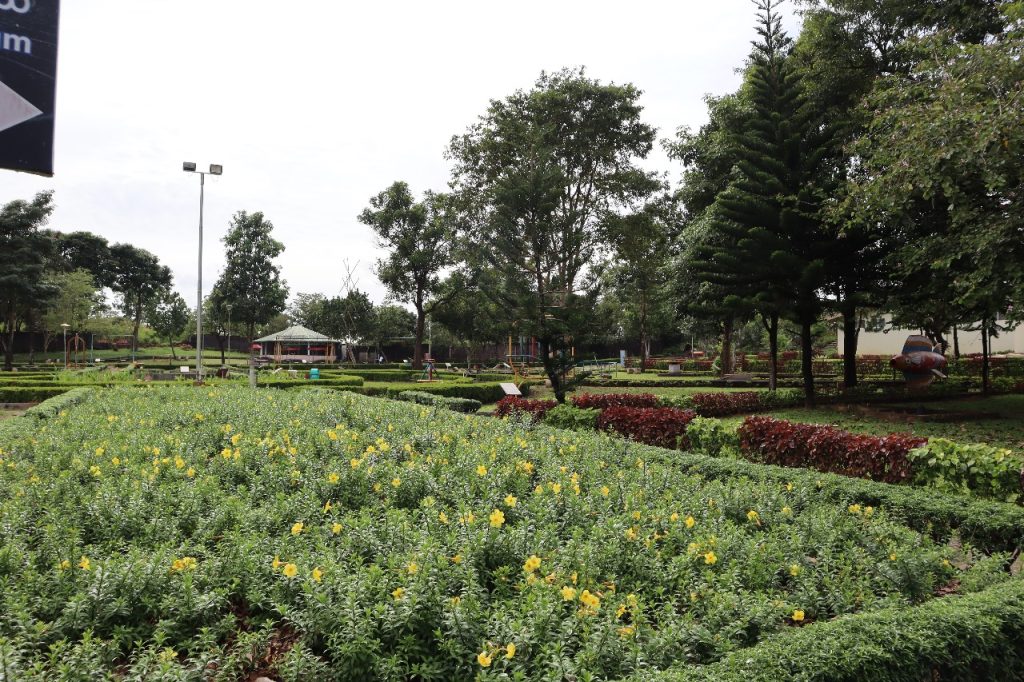
Manasa Water Park
Manasa Water Park, located within the Pilikula Nisargadhama complex, is a popular destination for families and thrill-seekers alike. This water park features a range of exhilarating water slides, wave pools, and lazy rivers, catering to visitors of all ages. It provides a fun-filled day out, allowing guests to splash around and enjoy the sun in a vibrant atmosphere. The park is designed with safety in mind, ensuring that all attractions are well-maintained and supervised by trained staff. With its scenic surroundings and family-friendly amenities, Manasa Water Park adds a lively element to the diverse offerings of Pilikula, making it an ideal spot for a refreshing escape from the heat.
Entry Fees and Combo Options
Pilikula Biological Park offers a range of entry options to suit different interests and budgets. Here are the current entry fees:
- Regional Science Centre: INR 40
- 3D Planetarium: INR 90
- Biological Park (Zoo): INR 80
- Heritage Village/Guthu Mane: INR 70
- Lake Garden: INR 50
- Botanical Garden/Museum: INR 60
- All-in-One Mega Combo (with Planetarium): INR 220
- All-in-One Combo (without Planetarium): INR 170
Additional charges apply for video cameras (INR 500), regular cameras (INR 170), and buggy rides (INR 40, excluding the zoo ride). Special discounts are available for children below 10 years and educational trips.
Conservation Efforts
Pilikula Biological Park is deeply committed to conservation and sustainable practices. The park participates in various breeding programs for endangered species, aiming to bolster populations and ensure the survival of these animals in the wild. Some notable initiatives include:
- Breeding Programs: Pilikula has successfully bred several endangered species, including the Bengal tiger and Indian leopard, contributing to global conservation efforts.
- Rehabilitation Programs: The park also serves as a rehabilitation center for rescued and injured animals, providing them with medical care and a safe environment for recovery.
- Environmental Education: Pilikula’s educational programs aim to raise awareness about conservation and environmental sustainability. The park conducts workshops, guided tours, and interactive sessions for schools and community groups.
Educational Initiatives
School Programs
Pilikula Biological Park offers a range of educational programs tailored for school children. These programs are designed to instill a love for nature and wildlife from a young age, fostering a generation of environmentally conscious individuals. Activities include:
- Guided Tours: Knowledgeable guides lead students through the park, providing insights into the behavior and ecology of various species.
- Interactive Sessions: Hands-on activities, such as animal feeding and planting trees, engage students and enhance their learning experience.
Research Opportunities
The park collaborates with universities and research institutions, offering a platform for scientific research and study. Researchers can conduct fieldwork and gather data on the park’s diverse flora and fauna, contributing to the broader scientific community.
Visitor Experience
Eco-Friendly Facilities
Pilikula Biological Park is designed with sustainability in mind. The park employs eco-friendly practices such as rainwater harvesting, solar energy utilization, and waste recycling. These initiatives not only reduce the park’s environmental footprint but also serve as a model for sustainable tourism.
Accessibility
The park is easily accessible from Mangalore, with well-maintained roads and ample parking facilities. Additionally, the park is wheelchair accessible, ensuring that all visitors can enjoy the attractions without barriers.
Amenities
To enhance the visitor experience, Pilikula offers a range of amenities, including:
- Food Courts: The park’s food courts serve a variety of snacks and meals, with options for vegetarians and non-vegetarians alike.
- Rest Areas: Comfortable seating areas and restrooms are strategically located throughout the park, providing convenience for families and elderly visitors.
- Buggy Vehicle Facilities: To help visitors navigate the vast park with ease, buggy vehicles are available for rent. These eco-friendly buggies provide a comfortable and convenient way to explore the park’s numerous attractions.
- Gift Shop: The park’s gift shop offers a selection of souvenirs, including eco-friendly products and local handicrafts, allowing visitors to take a piece of Pilikula home with them.
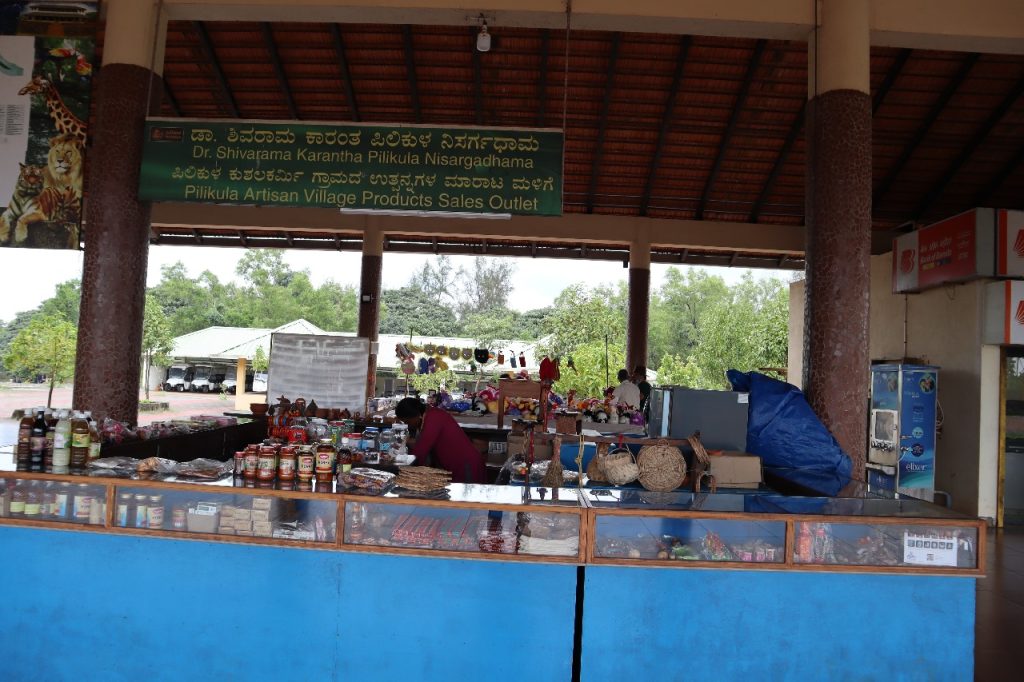
Pilikula’s Role in Eco-Tourism
Pilikula Biological Park is a shining example of eco-tourism, promoting sustainable travel practices and environmental stewardship. By offering an immersive experience that emphasizes conservation and education, the park attracts a diverse audience, from wildlife enthusiasts to casual tourists. Pilikula’s efforts in preserving biodiversity and promoting ecological balance make it a crucial player in Karnataka’s eco-tourism landscape.
Conclusion
Pilikula Biological Park stands as a beacon of conservation, education, and sustainable tourism. Its rich biodiversity, engaging attractions, and commitment to environmental stewardship make it an ideal destination for anyone seeking a deeper connection with nature. Whether you are a family looking for an educational outing, a tourist eager to explore Mangalore’s natural beauty, or a wildlife lover passionate about conservation, Pilikula offers an unforgettable experience that will leave you inspired and enlightened.
Frequently Asked Questions (FAQ)
- What are the park’s opening hours?
Pilikula Biological Park is open from 9:00 AM to 5:00 PM, Tuesday to Sunday. The park is closed on Mondays. - What is the entry fee for Pilikula Biological Park?
The entry fee varies based on age and category. Generally, it is INR 80 for adults and INR 50 for children. Special discounts are available for school groups and senior citizens. - Is there a guided tour available at the park?
Yes, Pilikula offers guided tours led by knowledgeable staff. These tours provide in-depth information about the animals and conservation efforts. - Can we bring food into the park?
Outside food is not allowed inside the park to ensure the safety and cleanliness of the environment. However, there are food courts available within the park premises. - Are there any accommodation options near Pilikula Biological Park?
Yes, there are several accommodation options within and near Pilikula, ranging from budget hotels to luxury resorts. These accommodations offer a comfortable stay and easy access to the park. - How can I contribute to the park’s conservation efforts?
Visitors can contribute by adopting an animal, donating to conservation projects, or volunteering at the park. Information on these programs is available at the park’s administration office. - Is the park suitable for young children?
Absolutely! Pilikula Biological Park is family-friendly and offers various activities and attractions suitable for young children, making it an ideal destination for a family outing. - What should I bring for a visit to Pilikula Biological Park?
Visitors are advised to wear comfortable clothing and footwear, carry water bottles, sunscreen, and hats. Binoculars and cameras are also recommended for wildlife spotting and photography. - How can I get to Pilikula Biological Park?
Pilikula Biological Park is conveniently located approximately 12 kilometers from Mangalore city. Visitors can reach the park by car, taxi, or public transportation. For detailed directions, please check out the map below.
Pilikula Biological Park is not just a place to visit but an experience to cherish. With its diverse wildlife, serene landscapes, and commitment to conservation, it invites you to step into a world where nature thrives, and curiosity is rewarded. Plan your visit today and become a part of Pilikula’s extraordinary journey towards ecological harmony and sustainable tourism.
